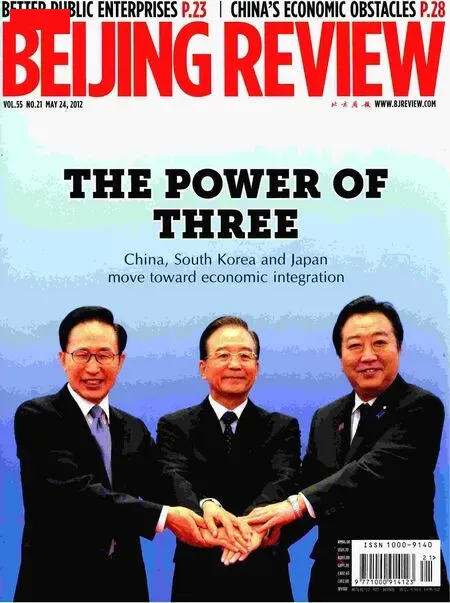A New Platform for Service Trade
A New Platform for Service Trade
The First China (Beijing) International Fair for Trade in Services (CIFTIS) will be held at China National Convention Center in Beijing on May 28-June 1. Approved by the State Council and jointly hosted by the Ministry of Commerce (MOFCOM) and the Beijing Municipal Government, CIFTIS is an international comprehensive fair for the services trade.
With the theme of Trade in Services: New Vision, New Opportunity and New Development, CIFTIS allows China to vigorously develop the service industry and trade in services and accelerate the transformation of economic development mode.
In recent years, China has scored considerable achievements in services trade. In 1982 China’s services trade volume was only $4.4 billion, accounting for 0.6 percent of the world’s total. In 2011 the country’s volume totaled $419.1 billion, accounting for 5 percent of the world’s total. Particularly in 2006-11, emerging services trade, such as computer, information service, insurance, finance and consulting service, have been increasingly competitive. Exports and imports of these industries rose from $31.34 billion to $87.35 billion, an average annual increase of 22.8 percent. In the meantime, traditional service trade, such as transportation, tourism and construction service, has also been developing stably.
Lu Jijian, Deputy Director of the Department of Trade in Services and Commercial Services of the MOFCOM, said from 2007 to 2011, the ministry held three sessions of China Trade in Services Congress in Beijing and Shanghai, discussing development trend of international trade in services. Benefiting from the congress, volume of imported services by China become the third largest in the world and that of exported services ranked the fourth.
CIFTIS is held, after the three congresses, to help achieve the goal that by 2015 China’s volume of trade in services will reach $600 billion and the average annual growth will surpass 11 percent.
“We and the world both need such a comprehensive platform to deepen exchange and cooperation among companies, deepen exchange and cooperation among governments and collect industrial information and government policies in various countries to promote further development of service industries,” Lu said.
According to him, CIFTIS is committed to being an important channel for China’s service industry to “bring in” and “go out,” a window for authoritative release of information and policy of trade in services, a bridge of exchange and cooperation for the enterprises of trade in services of all countries and is aimed to build a most authoritative and influential national-level, internationalized and comprehensive trading platform in the field of international trade in services.
Cheng Yuhua, Deputy Director of the Beijing Municipal Commission of Commerce and Director of the Organization Committee of CIFTIS, said the fair will add to Beijing’s attraction.
According to her, Beijing holds a leading position in the country in service trade. In 2011 Beijing’s service trade volume reached $89.54 billion, accounting for nearly 20 percent of the country’s total. Trade in services contributed more than 75 percent to the city’s GDP, much higher than the national level of 43 percent. Particularly, the proportion of emerging trade in services, including telecommunications, insurance, finance, computer and information services, among the city’s trade in services has increased from 30 percent in 2003 to 40.36 percent in 2011.
Beijing’s outsourcing service industry is also on the top of the country’s priorities. In 2011, Beijing executed $2.45 billion worth of offshore outsourcing contracts, a year-onyear increase of 59.3 percent. By the end of 2011, there had been 53 companies in Beijing whose outsourcing revenue is above $10 million, and four companies ranked among the top 10 outsourcing companies of China.
“To China, CIFTIS will help coordinated development of trade in services and trade in goods. To Beijing, CIFTIS will help improve the foreign trade structure and will sure to enhance development of Beijing’s foreign trade services,” Cheng said.

